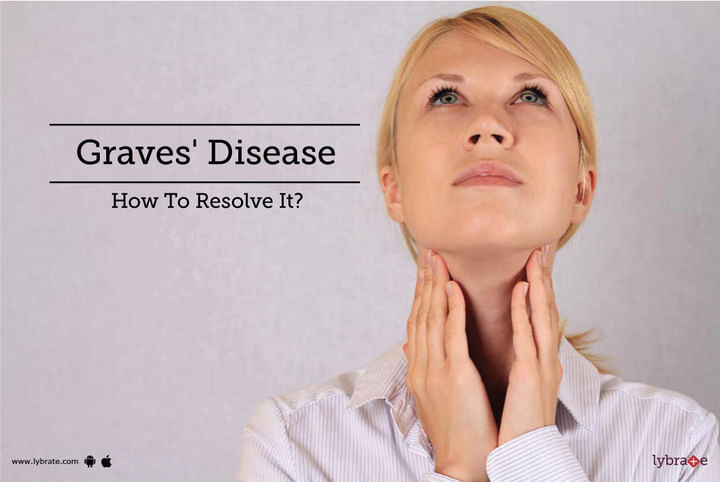Get the App
For Doctors
Login/Sign-up
Last Updated: Sep 27, 2020
BookMark
Report
Graves' Disease - How To Resolve It?
Graves' disease, also called as toxic diffuse goiter or exophthalmic goiter is an autoimmune disease that affects the thyroid gland resulting in overproduction of thyroid hormones (hyperthyroidism). Graves' disease is the most prevalent cause of hyperthyroidism.
Causes
- The exact cause is unclear.
- Enlarged thyroid: Normally, thyroid function is regulated by a hormone released by the pituitary gland. The antibody associated with Graves' disease — Thyrotropin receptor antibody (TRAb) — acts as the regulatory pituitary hormone. The TRAb overrides the normal regulation of the thyroid, causing an overproduction of thyroid hormones (hyperthyroidism). In Graves' disease, the immune system generates antibodies that trigger the TSH receptor, tricking the thyroid into making too many hormones, which speeds up the metabolism.
Risk factors
- Family history: It is a known risk factor.
- Gender: Women are much more likely to develop Graves' disease than men.
- Age: Graves' disease usually develops in people younger than 40.
- Other autoimmune disorders: People with other disorders of the immune system, such as type 1 diabetes or rheumatoid arthritis, have an increased risk.
- Emotional or physical stress: Stress may act as a trigger for the onset of Graves' disease.
- Pregnancy: Pregnancy or recent childbirth may increase the risk of the disorder that is genetically susceptible.
- Smoking: Cigarette smoking increases the risk of Graves' disease and also Graves' ophthalmopathy.
Signs and Symptoms
- Diffuse palpable goiter with audible bruit (70%)
- Tremors (40%)
- Exophthalmos (protuberance of one or both eyes, periorbital edema [25%])
- Fatigue (70%) and weight loss (60%) with increased appetite in young people and poor appetite in the elderly
- Heat intolerance (55%)
- Tremulousness (55%)
- Palpitations (50%), Heart failure
- Enlarged thyroid gland and increased sweating
- Weight loss (without a change in diet)
- Changes in the menstrual cycle
- Erectile dysfunction and reduced libido
- Anxiety and irritability
- Graves' dermopathy with thick red skin on the shins (rare)
Diagnosis
- Two signs are truly diagnostic of Graves’s disease (i.e., not seen in other hyperthyroid conditions):
- Exophthalmos
- Nonpitting edema
- A large goiter will be visible to the naked eye; however, a small one may be detectable only on physical examination.
- Abnormally high levels of T3 and T4 and a very low level of TSH are good indications of Graves' disease.
- Computed tomography and ultrasound can also be used for detection of Graves’ disease.
Complications
- Pregnancy issues include miscarriage, preterm birth, fetal thyroid dysfunction, poor fetal growth, maternal heart failure, and preeclampsia.
- Heart disorders include heart rhythm disorders, changes in the structure and function of the heart muscles, and congestive heart failure.
- Thyroid storm/accelerated hyperthyroidism or thyrotoxic crisis is a rare but life-threatening complication of Graves’ disease.
- Untreated hyperthyroidism also can lead to weak, brittle bones and osteoporosis.
Treatment
The primary treatment goals are to inhibit the overproduction of thyroid hormones and lessen the severity of symptoms.
- Radioiodine therapy: Iodine-131, synthetic thyroid hormone
- Medications: Beta blockers and antithyroid medications such as methimazole
- Surgery: Thyroidectomy
In case you have a concern or query you can always consult a specialist & get answers to your questions!



+1.svg)
